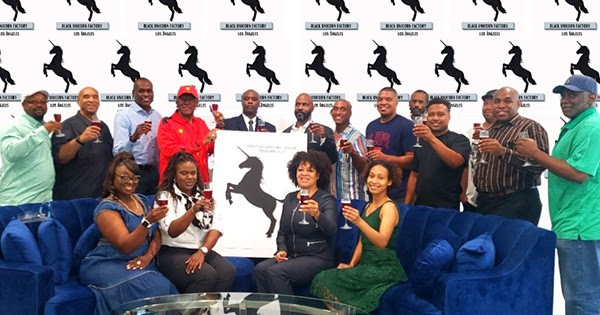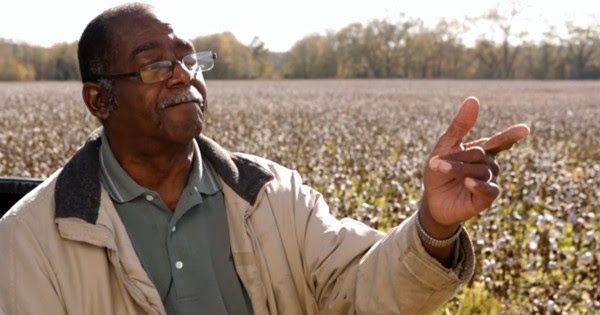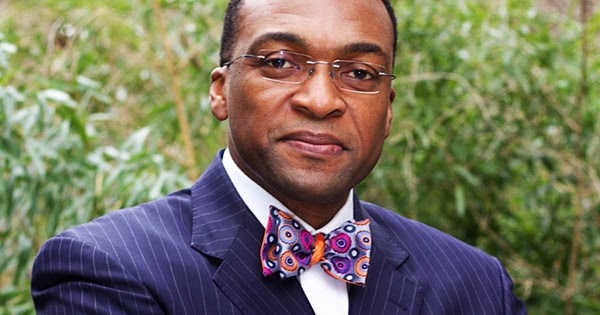
BLACK-OWNED TECH STARTUP IN LOS ANGELES RAISES $225 MILLION, THE LARGEST INVESTMENT EVER FOR A TECH STARTUP LED BY AFRICAN AMERICANS
(Courtesy Photo)
Los Angeles, CA (BlackNews.com) -- A new Black-owned startup is making history as they have now received the largest investment ever for an African American led technology startup in the nation.
Black Unicorn Factory is an African American Accelerator program that is about to take the US by storm with its game-changing accelerated growth strategy for small businesses. This enterprising new development program, now commonly referred to as an 'accelerator' has raised $225 million dollars in funding from investors.
This is historic because currently only 1% of all venture capital is invested in African American startups. Currently, there are over 500 unicorns in the world but not one is owned by an African American.
Johnny Stewart, the CEO of this new startup talked bullishly about the potential of this new accelerator platform, comments, "This is a real game-changer in Venture Capital Investing. This is the first time ever, that a startup can become a Billion Dollar company without using traditional funding sources." He continues, "We are revolutionizing venture capital investing. Startups now have a choice in venture capital funding. Only 1% of all startups seeking venture capital today receive venture capital funding. African American startups receive 1% of that 1% of venture capital funding, that's horrible!! But that's all about to change."
The Black Unicorn Factory specializes in turning normal small startups into unicorns. You might be thinking, what do they mean by "unicorn"? Well, the name unicorn refers to a tech company that has an evaluation of one billion dollars or more. In essence the Black Unicorn Factory is helping startups to achieve this level of success. The new symbol of business success today is a Unicorn, but there aren't any African American Unicorns in existence.
The Black Unicorn Factory has gained a reputation for being one of the nation's best group of growth of hackers. With estimated combined experience of over one hundred years, they have the ability to transform any tech startup into a profitable Billion Dollar company.
John Stewart also touched upon the process of how they were able to get to this point. "This was thought by many to be impossible, but we have obviously now shattered that belief. We have been beta testing our system for eight years now and I am delighted to say that we have now perfected the process."
It does indeed appear that all other Venture Capital backed startups have competition now! This startup claims that their unicorns are going to be bigger, faster, smarter, and stronger than other unicorns.
They also have a new app being released soon called "Follow Me For Equity". After downloading this app you simply agree to follow a company on it's social media platform and they can "Earn Equity" in that company which will become a unicorn. This means millions can now invest in Billion-dollar tech startups without having to invest a single dollar.
The Black Unicorn Factory's target market is "Indigent Investors". Indigent investors are those in society who would like to invest but can't afford too. As already alluded to, they are targeting people who once believed that if they didn't have any money they couldn't invest. In doing so, it will change the way we think about investing.
There are over 50 companies in the Black Union Factory, and all of these companies are on a clear path to going public in 12 months. Their exit strategy gives the investor a way to cash the stock that they received for following a Pre IPO company on social media. Our program also teaches those new to investing the process of investing and evaluating companies.
To conclude this is a landmark moment in the history of African American startups in the tech arena. What this company has been able to achieve is remarkable and when you consider the historical context of their achievements, it only makes it more impressive. The average American is never invited to invest in unicorn companies before they go public so this really does present a fantastic opportunity.
The CEO of this company, Johnny Stewart, has over 30 years of experience in building startups. He can be described as a serial entrepreneur, activist, author, investor, philanthropist, speaker, and mentor.
For more information about Black Unicorn Factory, its unicorns, and the "Follow Me for Equity" app, visit Black-Unicorn-Factory.com

CAMPAIGN FOR BLACK LEGACY FARMERS TO REVERSE THEIR ECONOMIC SUFFERING
(Photo Caption: Eddie Slaughter, an elder farmer from Buena Vista, Georgia, had his social security and disability payments offset for over nine years—amounting to over $41,000) Courtesy Photo

FOUNDER OF BLACK-OWNED ACADEMY URGES MORE STEM EDUCATION FOR BLACK AND BROWN COMMUNITIES
(Courtesy Photo)
Atlanta, GA (BlackNews.com) -- Marlon Lindsay, founder and CEO of 21stCentEd (A virtual STEM and CTE academy), announces the urgency of providing STEM education for all - especially for black, brown, and other minority communities. “Absent from economic opportunities created by a STEM education – for the most part – are black, indigenous, and people of color (BIPOC),” says Lindsay. He continues, “It is not merely a social good or altruism to include these historically underrepresented groups; it's an economic imperative.”
STEM – Science, Technology, Engineering, and Math – when taken together as an integrated discipline, provides opportunities for students to develop the enduring skills of critical thinking, creativity, communication, and collaboration. A STEM project, by its nature, is an experience in the skills dubbed as 21st-century skills.
After a decision to step away from an executive role at a well-respected employer, and a surreal shuttering of a newly formed marketing team at another, Marlon decided to create 21stCentEd and be the change he wanted to see in the STEM community. After two iterations of being called to work in the area of STEM education, he is “more convinced than ever before that the lack of a STEM foundation for all kids is the most severe long-term threat to this country outside of pandemics and vicissitudes.”
For the rest of the 21st-century, businesses will accelerate their investments in STEM fields. We have already seen many businesses invest in things such as robotics in manufacturing, self-driving trucks in transportation, AI-reading x-rays in medicine, robots making burgers, and #D printed houses to name a few. Results of this acceleration will force society to move beyond students with the natural disposition for STEM. “We must ensure a comprehensive STEM foundation for all students, just as we do with math and reading,” says Lindsay. He continues, “The confluence of technology, such as artificial intelligence, automation, robotics, and other emerging technologies, is transforming our world in a way that will render its citizens useless if not prepared.”
Universities and businesses continue to study the impact of the confluence of technology. The Oxford University Study on Employment indicates that 47% of all jobs will be eliminated or impacted by technology. The McKinsey study suggests that 50% of all jobs are automatable and 30% will be automated by 2030. The World Economic Forum reports that 6.1 million jobs will be created because of automation. Lindsay predicts that the coronavirus pandemic will impact these numbers as employers look to guard against another year like 2020 by automating as many functions as possible using current and emerging technologies.
There are simply not enough workers in today's climate to fill the demand for STEM jobs. “We will need 2.4M advanced manufacturing workers, 2.7M data scientists, and just over 300,000 cybersecurity professionals in the US over the next few years. And these are pre-pandemic numbers,” says Lindsay. As we transition into a more techno-dominant society, the innovations will need people. The people at the heart of these innovations will determine the direction of our society while making a great living, changing the trajectory of life for their families for generations to come.
The United States is being challenged from all sides for our innovative dominance. India, China, and others are investing heavily to ensure that they become globally competitive, catching the U.S. off guard. As such, the urgency of STEM in black and brown communities is about education, workforce development, and economic prosperity.
Lindsay says his mission through 21stCentEd is “to make STEM and CTE education available and accessible to all students, in-school, after-school, and out-of-school. And specifically, working with schools, nonprofits, and communities to make sure that black and brown kids, girls, and rural communities get the support they need to participate confidently in what is coined by the World Economic Forum as the fourth industrial revolution.”
About the founder
Marlon Lindsay is a business leader and writer who is committed to helping people reach their full potential. He believes that the stewardship of young people is a biological imperative and thus the world's ultimate priority. He pursues this priority daily with his own six children and the work that he does 21stCentEd and TechTrep.
For press inquiries, contact Dylan Howard at (725) 212-2899 or learn@21cented.comIndie Soul Magazine
Magazine for the Black & Latino Community



